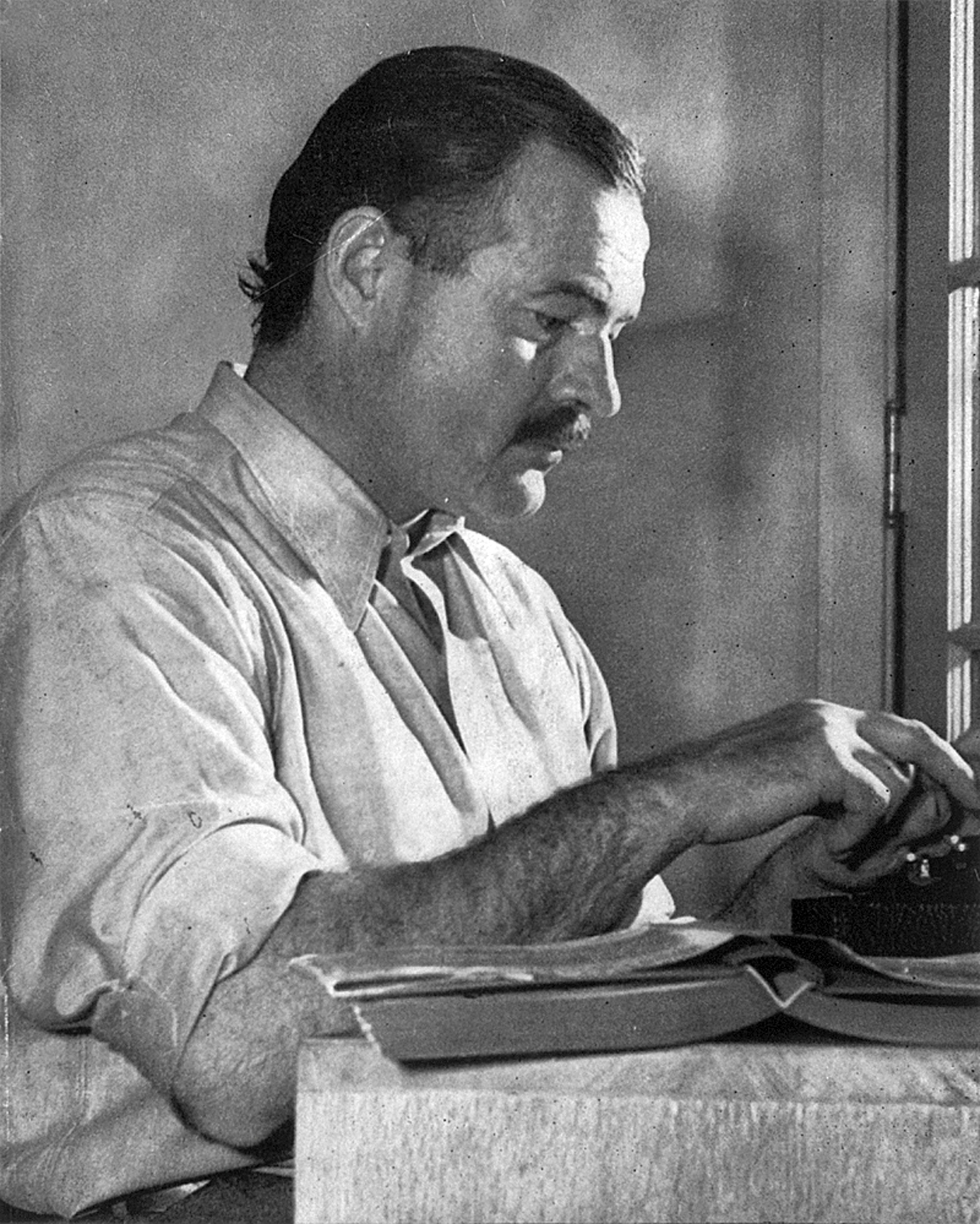Ernest Hemingway Quotes
Letter (5–6 January 1932); published in Ernest Hemingway: Selected Letters 1917–1961 (1981) edited by Carlos Baker
Source: The Dangerous Summer (1985), Ch. 1 (the opening paragraph of the book)
Source: A Moveable Feast (1964), Ch. 8
Source: The Dangerous Summer (1985), Ch. 1
About his book, The Sun Also Rises in a letter (21 August 1926); published in Ernest Hemingway: Selected Letters 1917–1961 (1981) edited by Carlos Baker
Pt. 2: Cuba (a few paragraphs from the end). The 'boy' is Thomas Hudson's last surviving son, Tom, a fighter pilot who was killed in action.
Islands in the Stream (1970)
Introduction to S. Kip Farrington Jr., Atlantic Game Fishing (1937)
“Keep your head clear and know how to suffer like a man. Or a fish, he thought.”
The Old Man and the Sea (1952)
Letter to F. Scott Fitzgerald (1 July 1925); published in Ernest Hemingway: Selected Letters 1917–1961 (1981) edited by Carlos Baker
Letter (3 July 1956); published in Ernest Hemingway: Selected Letters 1917–1961 (1981) edited by Carlos Baker
“You make your own luck, Gig. You know what makes a good loser? Practice.”
Speaking to his son Gregory, as quoted in Papa, a Personal Memoir (1976) Gregory H. Hemingway
"The Snows of Kilimanjaro," first published in Esquire (August 1936); later published in The Fifth Column and the First Forty-Nine Stories (1938)
It is July 1959 and Hemingway is in Marceliano's bar in Pamplona, where he has not been since before the Spanish Civil War. In the following paragraph Hemingway mentions for contrast an unpleasant American journalist in his early twenties whose 'handsome young face already showed the traced lines of bitterness around the upper lips.'
Source: The Dangerous Summer (1985), Ch. 9
Source: For Whom the Bell Tolls (1940), Ch. 16 <!-- p 208-->
Part II, Ch. 2
Green Hills of Africa (1935)
Pt. 3: At Sea, Section 6
Islands in the Stream (1970)
“Hesitation increases in relation to risk in equal proportion to age.”
Pt. 1, Ch. 3
Papa Hemingway (1966)
Part 1, Ch. 1 (the opening lines of the novel)
The line Yogi Johnson quotes is actually from Percy Bysshe Shelley's Ode to the West Wind. This is one of several misattributed quotes in the novel.
The Torrents of Spring (1926)
Letter to Bernard Berenson (2 October 1952); published in Ernest Hemingway: Selected Letters 1917–1961 (1981) edited by Carlos Baker
Preface to The First Forty-Nine Stories (1944)
Hemingway's famous iceberg theory of writing.
Source: Death in the Afternoon (1932), Ch. 16
Source: True at First Light (1999), Ch. 17
Pt. 3: At Sea, Section 15
Islands in the Stream (1970)
Source: True at First Light (1999), Ch. 9
Statement after seeing David O. Selznick's remake of A Farewell to Arms (1957).
Papa Hemingway (1966)
Source: Death in the Afternoon (1932), Ch. 11
Renata and Colonel Richard Cantwell in Ch. 12
Across the River and into the Trees (1950)
“Being against evil doesn't make you good. Tonight I was against it and then I was evil myself.”
Pt. 1: Bimini, Section 4
Islands in the Stream (1970)
"Trout Fishing in Europe" The Toronto Star Weekly (17 November 1923)
Catherine and Henry discussing whether he should grow a beard, in Ch. 38
A Farewell to Arms (1929)
“Easy writing makes hard reading.”
As quoted in Paris Was Our Mistress (1947) by Samuel Putnam, p. 128
Notes on the Next War (1935)
A Letter from Cuba (1934)
Nick Adams of "Fathers and Sons" in Winner Take Nothing (1932)
Source: True at First Light (1999), Ch. 12
"On the American Dead in Spain", New Masses (February 14, 1939)
Part 2, Ch. 5
Harold Stearns was a once-well-known New York writer and intellectual whom Hemingway knew when they were both living in Paris.
The Torrents of Spring (1926)
Letter to Arthur Mizener (12 May 1950); published in Ernest Hemingway: Selected Letters 1917–1961 (1981) edited by Carlos Baker
Source: Death in the Afternoon (1932), Ch. 9
“I didn't marry her family.'
'Of course not. But you always do. Dead or alive.”
David and Colonel John Boyle in Ch. 7
The Garden of Eden (1986)
Source: The Dangerous Summer (1985), Ch. 13
Source: A Moveable Feast (1964), Ch. 12
And I said, "A glass of hemlock."
Pt. 2, Ch. 5
Papa Hemingway (1966)
Source: Across the River and into the Trees (1950), Ch. 1 (the opening paragraph of the novel)
